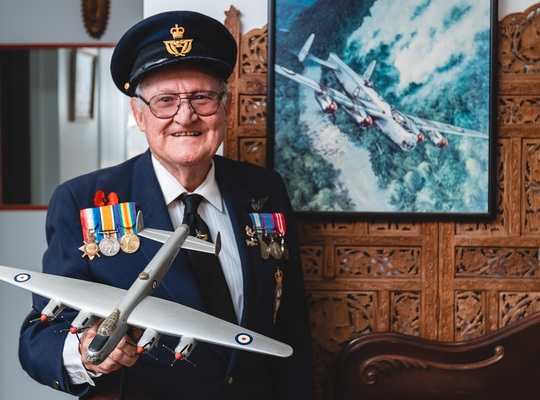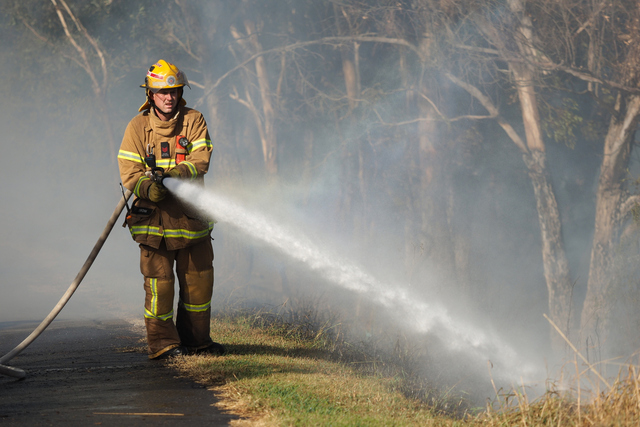After more than 60 years marching on Anzac Day, Malayan Emergency veteran Alan Stevenson will stay home tomorrow amid the coronavirus pandemic.
“I’m 91 now and this will be the first time I haven’t marched or attended a service for as long as I can remember,” he said.
Mr Stevenson will instead read the Ode of Remembrance in a private ceremony with his step grandchildren, who he has lived with in Highton for six years since moving from Queensland.
The former Royal Australian Air Force (RAAF) navigator was walking on the tread mill in his “granny flat” when the Independent called on Monday.
“I can’t go to the gym – I keep fit and healthy because I want to make it to 100,” he said.
The widower, already missing golf with his mates, was disappointed the pandemic had caused the cancellation of traditional Anzac Day services.
“I meet fellows there that you only see once a year,” he said.
“The whole world’s a mess now.”
But on Saturday he will still remember those who served, like his father Reginald, who fought in World War I, and brother Robert, who hunted Japanese snipers in the jungles of Bougainville in World War II.
Reginald James Stevenson returned from war in 1917 and died just 17 years later during surgery at age 37, when Mr Stevenson was five.
“I think of my father and what a terrible time my mother had when she was left with five kids and no money,” he said.
“This was 1934, right in the middle of the depression.”
Mr Stevenson followed in his father’s footsteps, both as a school teacher and in serving his country.
He joined the RAAF in 1952 and completed 54 missions bombing communist “terrorists” in 1954 during the Malayan Emergency.
The Malayan Emergency was a communist rebellion against British colonists, and later the Malaysian government, following the country’s independence in 1957.
Before Mr Stevenson served in Malaya, he joined a crew flying in a small plane to measure the atomic cloud of a nuclear test in South Australia.
“We found it out in the Simpson Desert at 1200 feet,” he said.
“When we returned we were so radioactive that the needle on the Geiger counter went off the scale.
“It never had any effect on me but some of the others were a bit crook – I must have been a bit tough being of Scottish decent.”
Mr Stevenson will remember his old mates from the RAAF and his brother Robert, who died six years ago.
In 1945 Robert and his squad crept through the Bougainville jungle hunting Japanese snipers who had been killing allied soldiers.
“Bob and four of his mates were told to find these fellows and kill them,” Mr Stevenson said.
One day Robert heard voices coming from nearby.
He lobbed two grenades and after they exploded his squad rushed the position, discovering they had killed four Japanese soldiers.
One dead soldier had a silk banner, which Robert carried for the rest of the war, he told his brother.
After the war he discovered the soldier was the son of a general and learnt the translation of the Japanese inscription on the banner, which included the words:
“To die for your country is an honour.”









